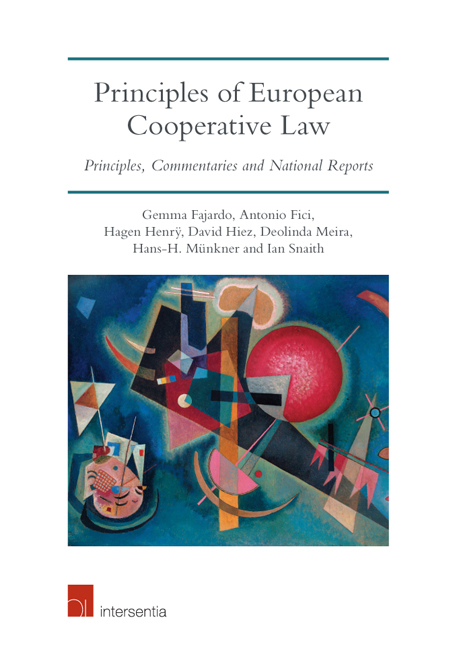Book contents
Chapter 7 - France
from Part II - National Reports
Published online by Cambridge University Press: 22 September 2018
Summary
DEFINITION AND OBJECT OF COOPERATIVES
PRELIMINARY REMARKS
General Cooperative Law and Special Cooperative Laws
It is difficult to comprehend cooperative French law as a whole because it is a mix of general law and several special laws dealing with specific kinds of cooperatives. The general law is Act 47-1775 of 10 September 1947 known as the’ cooperation statute‘. The purpose of the legislature at that time was to provide a cooperative common law to replace the various previous special laws laid down over a span of fift y years. Indeed, article 30 of the law still states that there will be a codification of cooperative law, and that the 1947 Law will be the first title of the new code. The 1947 Law also contained an original provision regarding normative coordination, since its Article 2 provided that general law would have greater strength than special laws, contrary to the traditional principle specialia generalibus derogant, non generalia specialibus. However, that objective was not achieved, and the provision on codification is still in force. The exceptional solution of article 2 has since been repealed by L. 92-643 of the 13th of July 1992, article 2.1.
The consequence is a large number of special laws of such an extent that it is pointless to enumerate them all. Some of the most important examples are the following:
Agricultural cooperatives: Code rural (C.rur.), arts. L.521-1 to L.529-6 and R.521-1 to R.529-2;
Workers‘cooperatives: law no. 78-763 of the 13th of July 1978 on workers’ cooperative societies; commercial cooperatives: code de commerce (C.com.), art. L.124-1 to L.124-16;
Craft cooperatives: law no. 83-657 of the 23rd of July 1983 on the development of certain social economy activities, art. 1 to art. 34;
Collective interest cooperatives: law no. 47-1275 of the 10th of September 1947, art. 19 quinquies to 19 quindecies ;
Merchants‘cooperatives: C.com. arts. L.124-1 to L.124-16; Transportation cooperatives: code des transports (C.transp.), arts. L.3441-1 to L.3441-6 ;
Banking cooperatives: code mon é taire et financier (C.mon.fin.), art. L.512-1 to L.512-10, precising that, in the chapter dealing with these cooperatives in this Code, each banking cooperative is submitted to different provisions; for example: C.mon.fin., arts. L.512-2 to L.512-13 for‘banques populaires’.
- Type
- Chapter
- Information
- Principles of European Cooperative LawPrinciples, Commentaries and National Reports, pp. 163 - 252Publisher: IntersentiaPrint publication year: 2017



